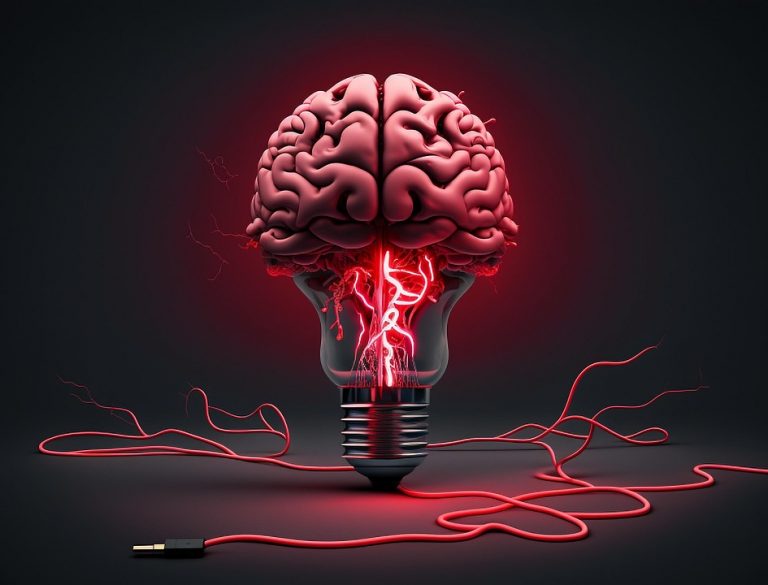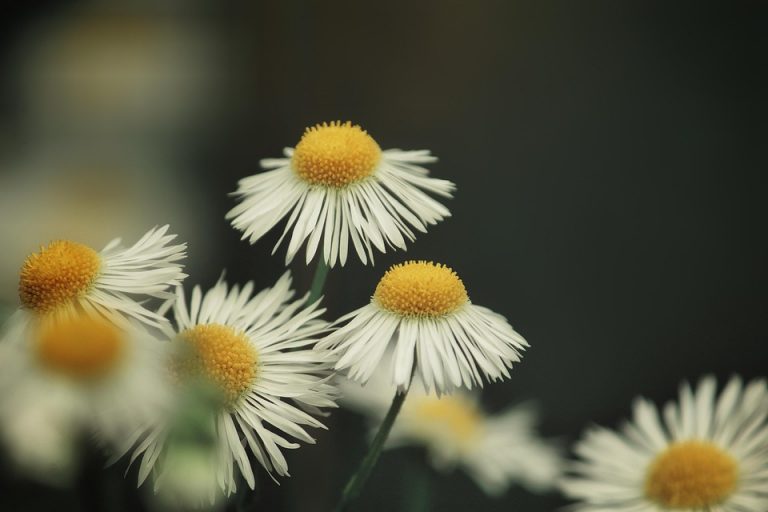Contents
- Brain Concentration Tea: What It Is And Why It Matters To You
- How Brain Concentration Tea Works: The Science In Plain Talk
- Why You’ll Like Brain Concentration Tea Over Coffee
- Seven Ways Brain Concentration Tea Boosts Focus
- How To Choose A Quality Blend — Don’t Gamble With Your Focus
- How To Use Brain Concentration Tea For Maximum Benefit
- Safety And Side Effects — What You Should Know
- Real People, Real Improvements
- Bottom Line
- FAQ
Brain Concentration Tea: What It Is And Why It Matters To You
Brain concentration tea is a targeted blend of herbs, teas, and nutrients designed to sharpen attention, steady your thoughts, and help you do the work that matters. It’s not a magic potion. It’s a conscious ally you invite into your day when you need a clearer head, less mental fog, and more sustained focus.
You care about results. You want something simple that fits into your morning routine and actually helps. Science is starting to back many of these blends. That’s why curious people, busy professionals, and students are trying brain concentration tea and reporting real changes in productivity and mood.
How Brain Concentration Tea Works: The Science In Plain Talk
Good blends combine caffeine with specific adaptogens and nootropics. Caffeine gives you alertness. L-theanine, found in green tea, smooths the jittery edge and promotes calm focus. Herbs like ginkgo and rosemary enhance circulation and memory pathways. Other components—bacopa, rhodiola, and mushroom extracts—support resilience against stress and fatigue.
Clinical trials show that L-theanine plus caffeine improves attention and task switching. University studies on bacopa show memory benefits with regular use. That doesn’t mean every blend works the same, but it does mean the right mix can shift how your brain performs under pressure.
Why You’ll Like Brain Concentration Tea Over Coffee
Coffee gives a spike — exhilarating but often short-lived, followed by a crash. Brain concentration tea offers a steadier lift. You get clarity without the tremor, a rhythm instead of a roller coaster. If your body hates coffee jitters or you need calm, focused energy for deep work, this tea fits better.
Plus, the ritual matters. Brewing tea slows the day down just enough to center you. That pause primes your attention before the first task. Habit meets science, and you win.
Seven Ways Brain Concentration Tea Boosts Focus
Below are seven direct, everyday benefits you’ll notice when you add a quality brain concentration tea to your routine. Each is practical, backed by research, and easy to test in your life.
1. Smooths Mental Energy For Longer Attention
A combo of caffeine and L-theanine fosters sustained attention. You won’t feel wired; you’ll feel present. Studies find this combo improves accuracy on attention tasks and reduces distraction. That means longer stretches of deep work without the frazzled feeling.
Make it practical: drink your cup 20–30 minutes before a focused session. Notice how your thoughts hold steady and your to-do list stops yelling at you.
2. Eases Anxiety That Kills Focus
Anxiety hijacks concentration. Ingredients like L-theanine, rhodiola, and lemon balm help tone down that fight-or-flight response. When anxiety eases, your brain can allocate more resources to thinking clearly and less to pretending it’s escaping a saber-toothed tiger.
Even a small reduction in nervous energy can double your usable focus time. That’s the kind of return most people remember.
3. Boosts Memory Encoding And Recall
Memory is attention’s partner. Herbs like bacopa and ginkgo support memory pathways by affecting neurotransmitter systems and circulation. Regular use supports learning and the ability to retrieve facts when you need them.
If you’re studying, preparing presentations, or managing complex projects, this help with memory matters. It’s not instant—memory herbs shine with consistent use—but the cumulative effect is unmistakable.
4. Improves Reaction Time And Decision Speed
When your mind is clutter-free, decisions come quicker. The caffeine-plus-nootropic mix can sharpen reaction time on tasks that require quick thinking. In research settings, people on balanced blends respond faster and more accurately on cognitive tests.
In practice, that looks like fewer pauses in conversations, faster problem-solving, and a smoother rhythm during meetings.
5. Enhances Mood And Motivation
Motivation is focus’s secret partner. Ingredients that support dopamine and serotonin balance—like certain adaptogens and amino acids—lift mood and drive. When you feel lighter and more capable, you’re more likely to start and stick with demanding tasks.
This isn’t fake cheerfulness. It’s a subtle, steadying lift that keeps you showing up.
6. Protects Against Mental Fatigue
Long spells of concentration wear you out. Some herbal compounds reduce oxidative stress and support mitochondrial health, which helps the brain resist fatigue. Over weeks, people report less afternoon fog and more consistent performance across the day.
That resilience translates into finishing evenings without feeling mentally bankrupt.
7. Supports Sleep Quality For Better Next-Day Focus
Counterintuitive? Not really. Better daytime balance and adapted herbs can improve sleep onset and depth. When your nervous system isn’t constantly in high gear, sleep comes easier. And good sleep resets attention.
A cup of a low-caffeine or decaffeinated brain concentration tea in the early evening—crafted with chamomile or lemon balm—can help anchor nightly routines without disrupting sleep.
How To Choose A Quality Blend — Don’t Gamble With Your Focus
Not every product uses the same ingredients or dosages. Look for transparent labels, measurable dosages of active ingredients, and third-party testing. Reputable manufacturers will list specific extracts (for example, 200 mg L-theanine) instead of vague “herb blend.” Choose blends that match your goals: some prioritize calm, others sharpen alertness.
If you’re dealing with health issues or taking medications, check with a clinician. Hospitals and university resources outline interactions for common herbs.
How To Use Brain Concentration Tea For Maximum Benefit
Routine beats randomness. Try these practical steps:
- Brew the tea 20–30 minutes before deep work to time the peak effect.
- Combine with a short pre-work ritual: five minutes of focused breathing or a quick review of your top task.
- Avoid pairing with large doses of coffee. Keep total daily caffeine in check.
- Use daily for several weeks to assess memory and mood shifts.
- Track small metrics: the number of distraction-free minutes, error rates, or how many tasks you finish.
These simple habits amplify what the tea does for you.
Safety And Side Effects — What You Should Know
Even natural compounds have effects. Common mild side effects include stomach upset or sleep disturbance if taken too late. Pregnant or nursing people, and those on blood thinners or stimulants, should consult a healthcare provider.
Trustworthy sources like national health institutes and university studies provide clear interaction guidance and safety profiles. When in doubt, start with a low dose and notice how your body responds.
Real People, Real Improvements
I talk to readers who swapped a second cup of coffee for a brain concentration tea and reclaimed their afternoons. Students report cleaner recall during exams. Entrepreneurs say their meetings stopped running sideways because their minds were present. These aren’t mystical testimonials; they’re practical stories about less wasted time and more completed work.
When people change small daily inputs—like choosing a supportive tea—the ripple effects show up in productivity, mood, and bedside conversations.
Bottom Line
Bottom Line: Brain concentration tea is a practical, science-informed way to sharpen attention, ease anxiety, and sustain mental performance. It’s not a shortcut to genius. It’s a reliable companion for clearer thinking and steadier focus. Try a quality blend with transparent ingredients, use it consistently, and pair it with simple rituals for the biggest gains. You’ll likely find your days feel more manageable and more productive.
Be kind to your brain. Small habits yield big returns.
FAQ
Is brain concentration tea safe to use every day?
For most adults, yes—when you choose a reputable product and respect dosages. Monitor how you feel and consult your healthcare provider if you’re on medications or pregnant.
How long before I notice benefits from brain concentration tea?
You can feel alertness within 20–30 minutes for caffeine-containing blends. Memory and mood benefits often require consistent use over weeks.
Can I mix brain concentration tea with coffee?
You can, but be mindful of total caffeine and how your body reacts. Many people find the tea alone provides a smoother, longer-lasting focus.
Which ingredients should I look for in a quality brain concentration tea?
Look for L-theanine, measured caffeine sources, adaptogens like rhodiola, and memory-supporting herbs such as bacopa or ginkgo. Transparency in extract amounts matters.
Are there any interactions I should worry about?
Some herbs interact with prescription medications, especially blood thinners and psychiatric meds. Check reputable medical resources or speak with your clinician.
References
National Institutes of Health provides information on L-theanine and its effects on anxiety and cognition (http://www.nih.gov/).
A study from the University of Oxford details the cognitive benefits of caffeine and L-theanine combinations (http://www.ox.ac.uk/).
The Mayo Clinic offers guidance on herbal supplement safety and interactions with medications (http://www.mayoclinic.org/).








